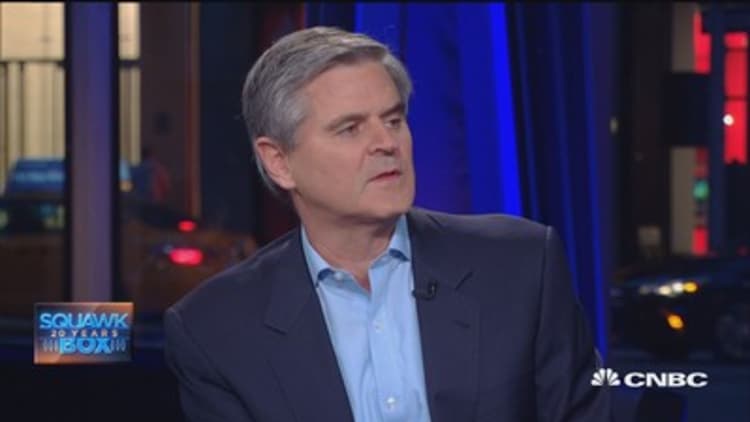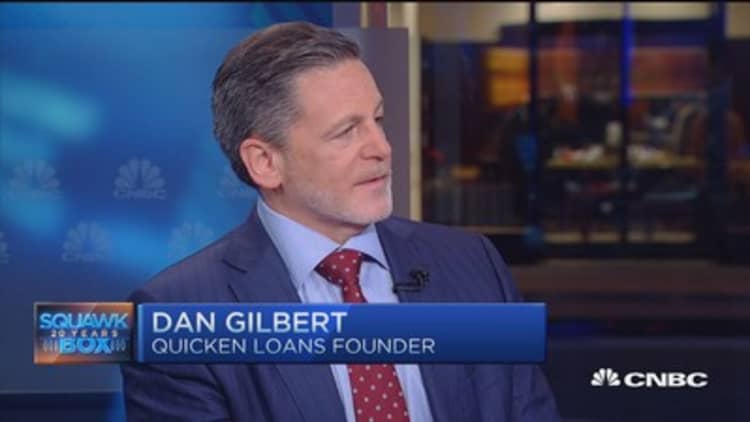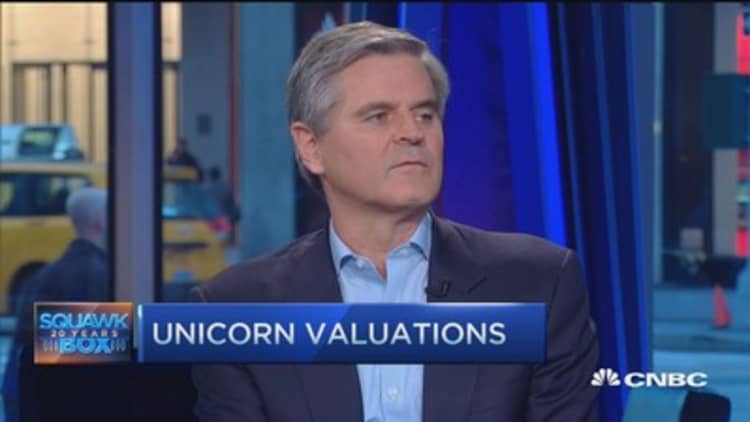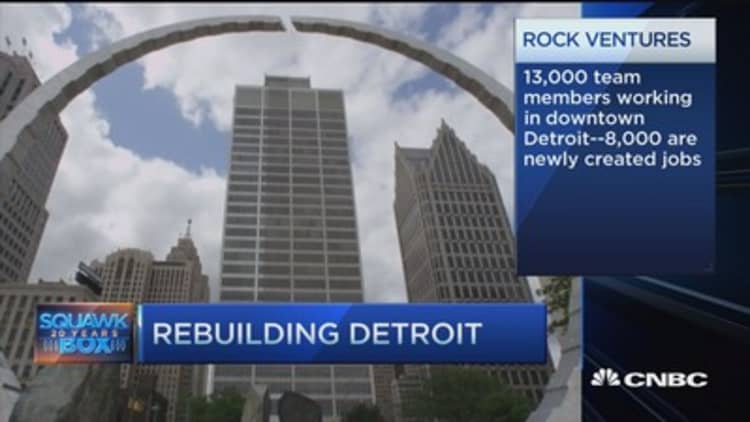




Grading the U.S. economy, the rosiest scores from two billionaires on CNBC on Friday would average about 68, equal to a D+ on a report card.
Steve Case, co-founder of AOL, told "Squawk Box" he'd give the economy a 7 or 7.5 out of 10, saying there's been improvement since the financial crisis but more has to be done to jumpstart growth.
Appearing alongside Case in a wide-ranging interview, Quicken Loans Chairman Dan Gilbert initially rated the economy a 5.5 out of 10, but increased his assessment to a 6 after hearing Case's argument.
Case was encouraged by what he sees as strong job creation in recent years.
But he said, "The way we track jobs [also] needs to be updated" to reflect the millions of people in the "gig economy," also referred to the sharing economy, personified by the new Ubers of the world.
These workers don't fall into the traditional full-time or part-time classifications, he said. Many choose to work fewer hours for multiple companies. "I think there's going to be a new class of worker that's going to emerge in the next few years," he said.
Case believes this trend is good, but he also recognizes the challenges in terms of health-care benefits and retirement savings, perks that companies help many full-time employees pay for.
Gilbert also sees the gig economy expanding, especially among millennials, loosely defined as people born in the early 1980s through the late 1990s. "They want this flexibility," he said. "It's a lifestyle thing for many of them."
It's about "putting lifestyle first [and] family first," Case agreed, saying many workers no longer find a job first and a place to live second. They're moving to cities and towns where they want to live and then figuring out where to work and how to pay for it, he said.
That's putting many young people on a delayed financial trajectory, Gilbert said. "I think millennials are a generation that's a little bit behind, maybe four or five years behind the previous generation as far as when they buy a house."
"Sooner or later, biology kicks in. They're going to probably be having families at the pace of everybody else, probably just a little bit later," he said.
As a result net household formation, measured by immigration plus new households minus deaths, has been lagging, Gilbert said.
"For a while in this country, we were running between 1.5 million and 2 million [in net household formation] every single year. That drives new construction," he continued. "We've been below that significantly for years now, since the 'housing armageddon.'"
Gilbert characterized the housing market as stable. "Certainly, it's not on fire; it's not by any means. And it's not crashing either. It's not in a bust scenario. We're sort of just chugging along."





